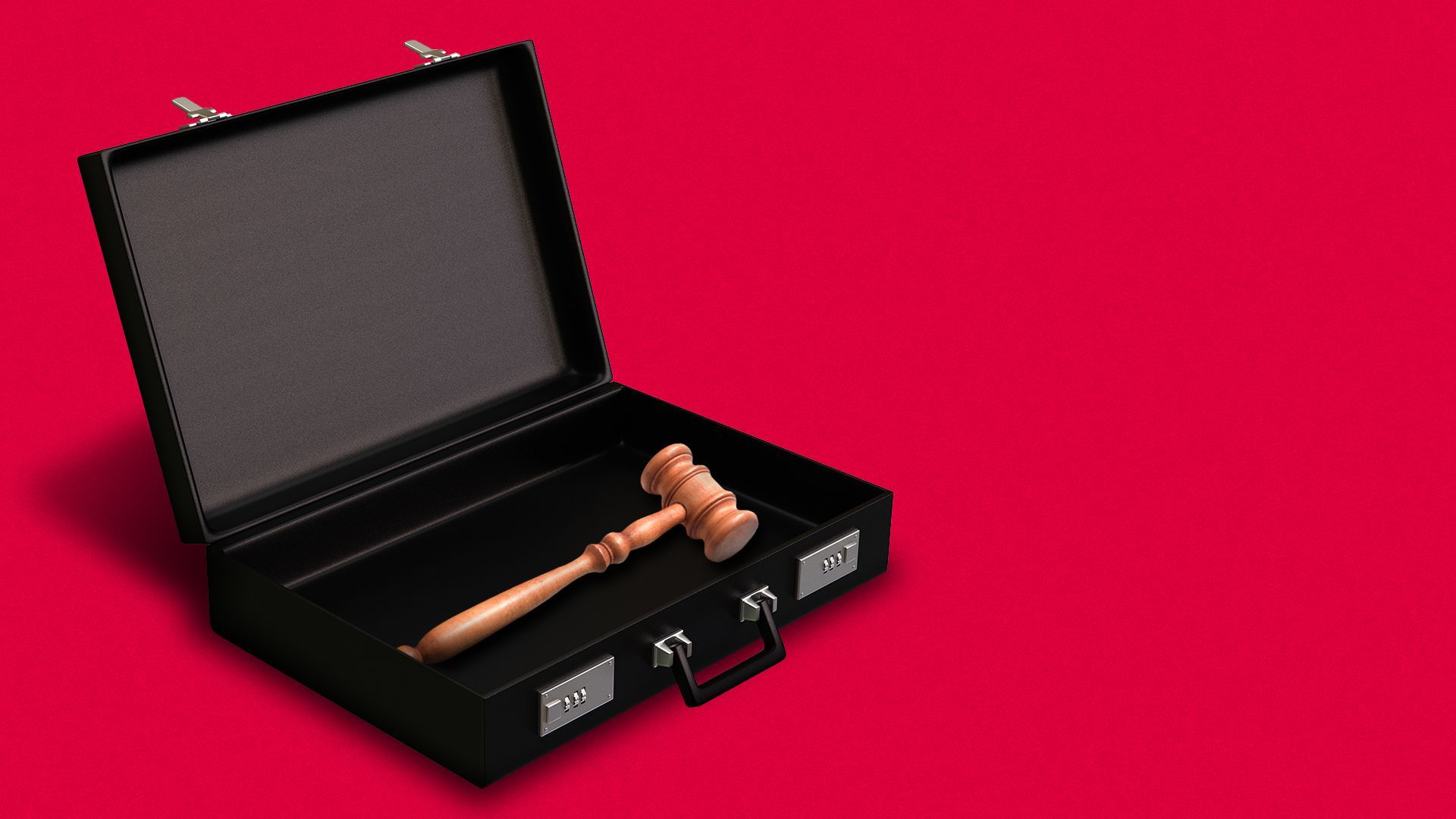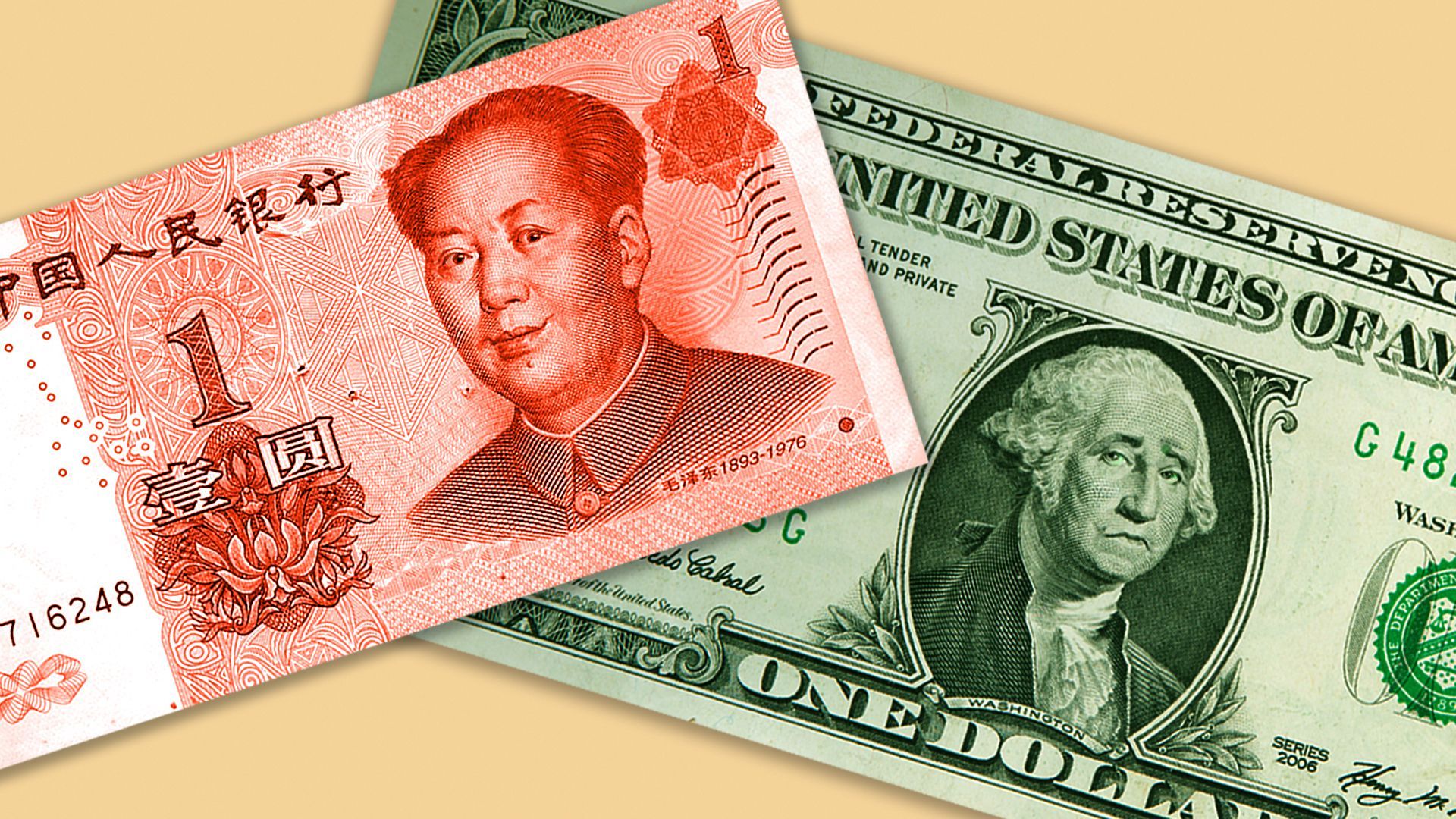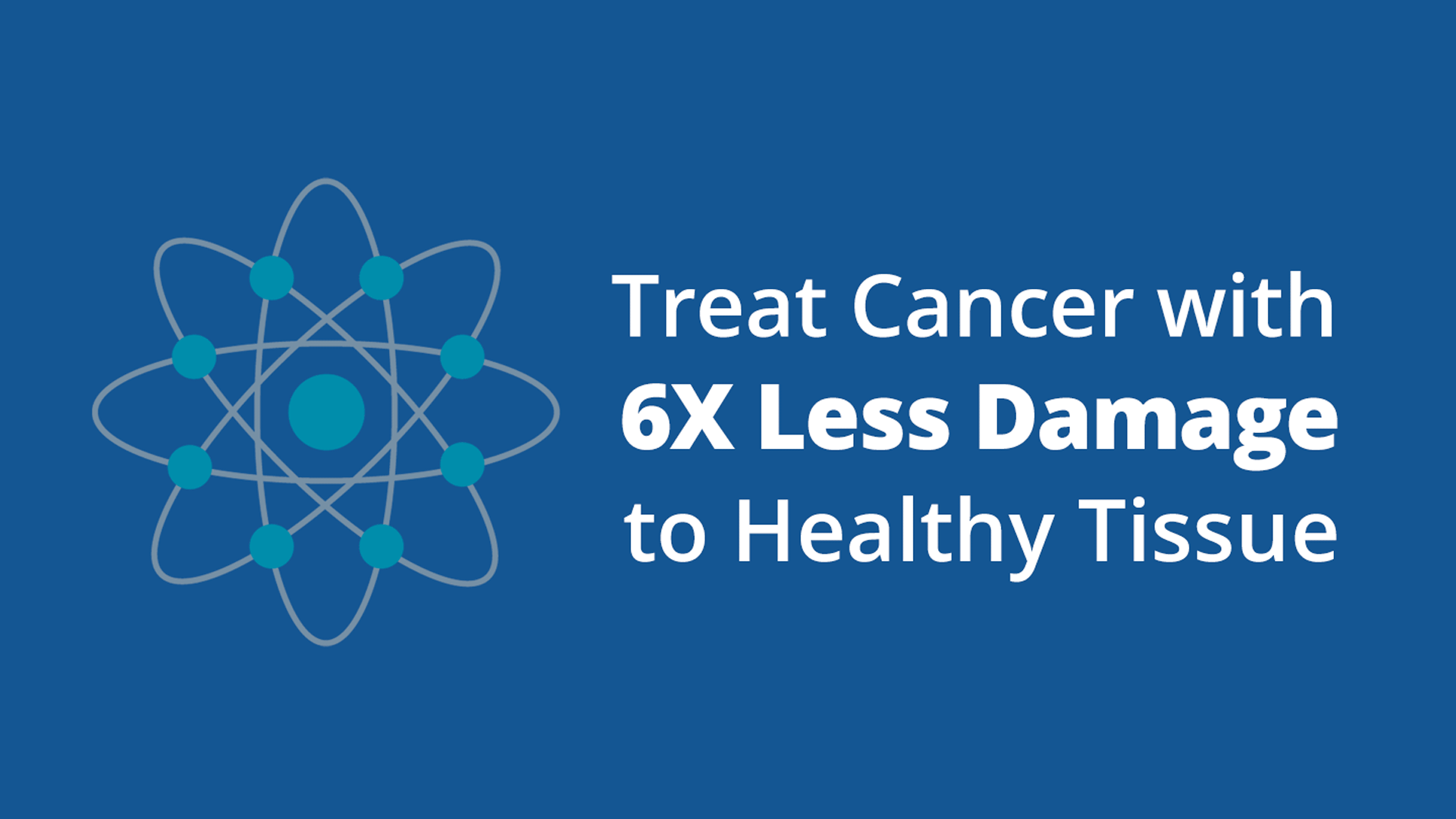| | | | | | | Presented By OurCrowd | | | | Axios Markets | | By Emily Peck and Matt Phillips ·Mar 18, 2022 | | 🙌 Rejoice. Friday is upon us, along with a weekend break from a bucking bronco of a market. In case you missed it, the S&P 500 clawed its way back into positive territory for March, with a nearly 5% romp so far this week. Below, we talk about Citi's news-making health coverage disclosure, a new threat to the U.S. dollar and a boom in bearish bets on energy stocks. Today's newsletter is 1,135 words, 4.5 minutes. | | | | | | 1 big thing: Ignoring abortion gets harder |  | | | Illustration: Annelise Capossela/Axios | | | | It's a rare event when a change to a company's insurance benefits makes news — but that's what happened this week when Citigroup mentioned in a regulatory filing that it would cover travel expenses for U.S. employees seeking abortions in states where the procedure is restricted, Emily writes. Why it matters: Even as corporations are becoming more vocal around social issues, abortion remained a taboo topic. But Texas effectively banned the procedure last year, and the Supreme Court may soon follow, creating a legal minefield in which some states outlaw the practice. Companies may soon have little choice but to act. State of play: Citi appears to be one of the first public companies to officially update its employee health care policy in response to the changing legal landscape. - Apple, which has a big presence in Texas, confirmed to Axios that its health insurance policies cover abortions, including travel fees if needed.
- Other employers may have similar health insurance policies, but they haven't talked about them.
How it works: Citi's policy is surprisingly uncomplicated. Travel expenses are covered under an employee's health insurance, according to a source familiar with it. - The company plan already covers people with, say, a heart condition who need treatment at a far-off hospital. This is no different. The benefit would extend to employees in any state with restricted access.
- Paid sick leave would cover any time off for an employee who needs to travel, get the procedure done and recover.
- Privacy shouldn't be an issue, the source said. An outside provider handles benefits, so a woman's boss would have no reason to know the details of her medical issue.
The impact: The Citi policy should immediately help employees in Texas, where the state's abortion ban is already causing economic hardship. - To travel for care, many have delayed paying bills and rent, taken out loans, or taken days of unpaid time off, according to a study from the Texas Policy Evaluation Project at the University of Austin, Texas.
- At least one woman was fired for taking time off, the report found.
The other side: Abortion opponents were quick to criticize Citi. - "Nothing more than a PR stunt by a 'woke' company to support a culture of death," George P. Bush, the state's Republican land commissioner in the running for attorney general, told Bloomberg.
- Meanwhile, the Texas GOP chairman advised folks to avoid banking with Citi and other companies "hostile" to their values.
- Citi could also be opening itself up to legal liability, but for now, with the ban in constitutional limbo the ramifications are unclear, lawyers told Bloomberg Law.
The big question now is whether more large companies will step in with policies like Citi's or make public pronouncements if Roe is overturned by the Supreme Court and triggers more bans, said Leila Abolfazli, director of federal reproductive rights at the National Women's Law Center. Go deeper. |     | | | | | | 2. Catch up quick | | 🛢 Oil rose 8% on warnings of "biggest supply crisis in decades." (Axios) 🇷🇺💲Russia avoids defaulting on debt — for now. (WSJ) ⬇️ BNY Mellon said it would take $100m hit on Russia retreat. (FT) 😳⏰ Senators were surprised by the daylight saving bill. (BuzzFeed) |     | | | | | | 3. Saudis mull oil sales in Chinese yuan |  | | | Illustration: Sarah Grillo/Axios | | | | The crushing sanctions levied on Russia by the U.S. showed the power of the dollar — and that may drive efforts to avoid using the greenback, Matt writes. - Case in point: Saudi Arabia is in talks with China about accepting Chinese currency in exchange for oil, the WSJ reports.
Why it matters: Such a deal could signal that the dollar's pre-eminent status — already in flux as a result of China's rise — faces additional challenges during this moment of geopolitical change. Threat level: Experts on the dollar — which is the world's dominant currency in terms of pricing, payments and reserves — say that a potential Saudi-China oil linkage is more a symbolic move than a serious threat to the dollar's top-dog "reserve currency" status. - "It could marginally dent the dollar's role as the reserve currency, but not that much," Eswar Prasad, an economics professor at Cornell University and the author of "The Dollar Trap," tells Axios.
- "Ultimately, as a reserve currency, you still need a very liquid currency with deep financial markets and strong institutions," he adds.
The backstory: Saudi Arabia has sold its oil exclusively in dollars since late 1974 after it struck a deal with the Nixon administration that included key economic and security components. - At the time, Saudi Arabia had just led a devastating oil embargo against the U.S.
- The 1974 agreement reset the relationship, deepening the military and economic ties between the two countries. We were friends again ... kind of.
- But since a U.S. intelligence report found that Saudi leaders approved the 2018 murder of journalist and U.S. resident Jamal Khashoggi, things are less friendly.
The bottom line: The dollar's strength stems in large part from its linkage to democracy. American laws, courts and democratic institutions exert a powerful pull that authoritarian economies have trouble competing with. At least for now. |     | | | | | | A message from OurCrowd | | Nobel Prize-winning tech unlocks greater cancer treatment | | |  | | | | Using cutting-edge laser-based tech, HIL Applied Medical is reducing proton therapy costs by 65% –– potentially expanding treatment to over 1 million cancer patients annually. HIL has a signed agreement with global leader Proton International. Now, you can invest. Explore HIL's investment potential. | | | | | | 4. Charted: Energy shorts |  Data: S&P Global Market Intelligence; Chart: Axios Visuals As oil prices soared over the last few months, short sellers pounced on energy companies, Axios' Kate Marino writes. What's happening: Changes in the percentage of short interest in energy companies largely tracked with shorts of all S&P 500 companies for much of last year. - That changed around January as U.S. oil prices pushed into the $80s — and energy stocks outperformed, logging a 33% year-to-date rise through mid-March compared to the S&P's 12% decline.
- Energy shorts shot up, diverging from the S&P average.
"Short sellers boosted their bets against energy stocks ... speculating that the days of $100 per barrel oil will be short-lived," wrote S&P Global Market Intelligence in a research note. - The oil price rise has already tailed off, at least for now. After peaking at $124 per barrel last week, it rapidly retreated to sub-$100 levels.
|     | | |  | | | | If you like this newsletter, your friends may, too! Refer your friends and get free Axios swag when they sign up. | | | | | | | | 5. 😆 Back to normal at work, kind of |  Reproduced from Gallup; Chart: Axios Visuals In a new Gallup survey released this morning, only 24% of employees said they believe their employer cares about their well-being, down from 49% at the height of the pandemic, Emily writes. Why it matters: The country is apparently getting back to normal. Since Gallup started asking about this back in 2010, only about a quarter of employees typically believed well-being was something the boss truly cared about. During the COVID-19 crisis, when employers were regularly communicating plans and policies and health concerns, more workers got the sense they actually mattered. - As the pandemic dragged on, workers burned out and variants kept uncertainty alive — and that sense diminished.
- At the same time, worker expectations around flexibility and treatment changed, said Jim Harter, chief scientist for Gallup's workplace management practice.
- In other words, the bar has been raised, and workers expect more now.
The bottom line: We're back to normal in some ways, Harter said, but "not a real good normal." |     | | | | | | A message from OurCrowd | | New cancer treatment leverages Nobel Prize-winning tech | | |  | | | | HIL Applied Medical is expanding access to cancer treatment with a cutting-edge laser-based proton therapy system. With a working prototype that leverages Nobel Prize-winning tech, HIL has earned millions in grants from the EU and Israeli governments. Invest today at OurCrowd. | | | | What do you all think? Does your employer care about your well-being? Email: markets@axios.com. (Note to our editors: We know you care, though feel free to lavish us with praise. 😀) |  | It's called Smart Brevity®. Over 200 orgs use it — in a tool called Axios HQ — to drive productivity with clearer workplace communications. | | | | | | Axios thanks our partners for supporting our newsletters. If you're interested in advertising, learn more here.
Sponsorship has no influence on editorial content. Axios, 3100 Clarendon Blvd, Suite 1300, Arlington VA 22201 | | | You received this email because you signed up for newsletters from Axios.
Change your preferences or unsubscribe here. | | | Was this email forwarded to you?
Sign up now to get Axios in your inbox. | | | | Follow Axios on social media:    | | | | | |
Post a Comment
0Comments